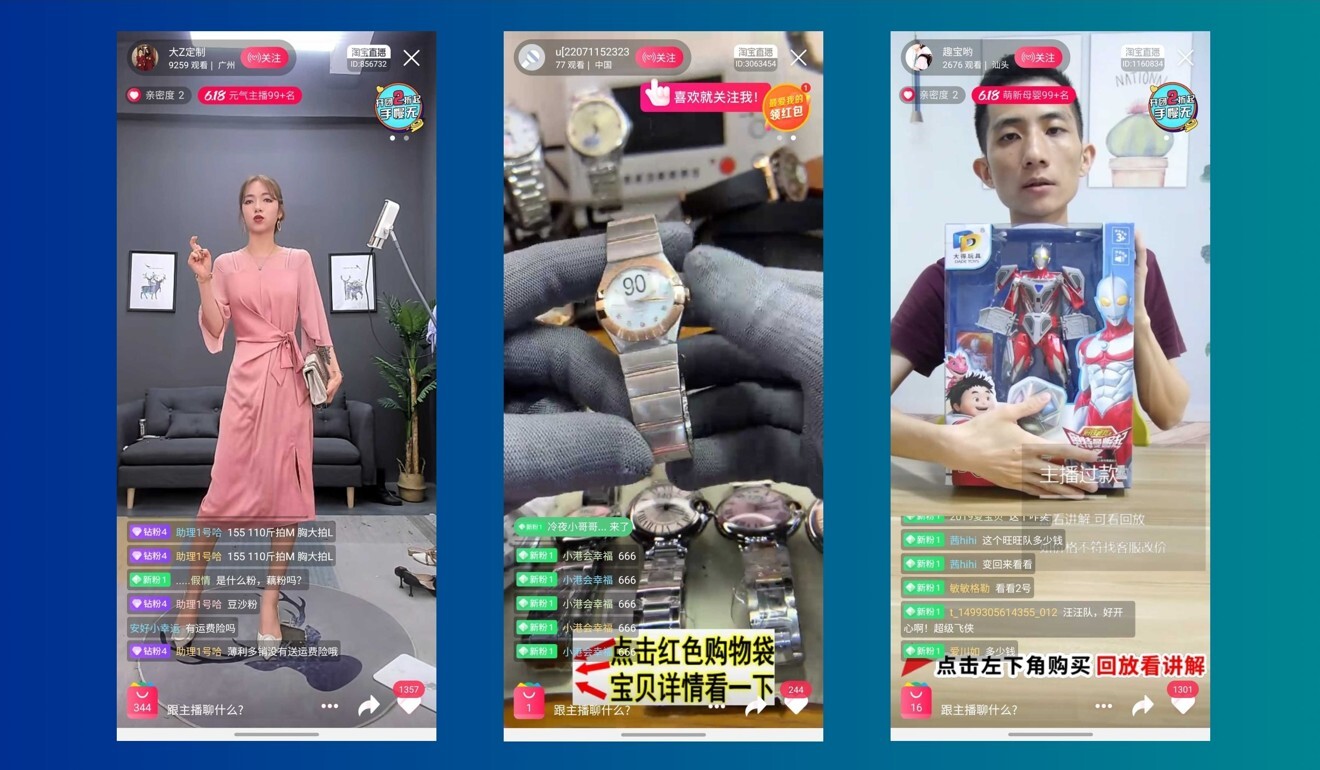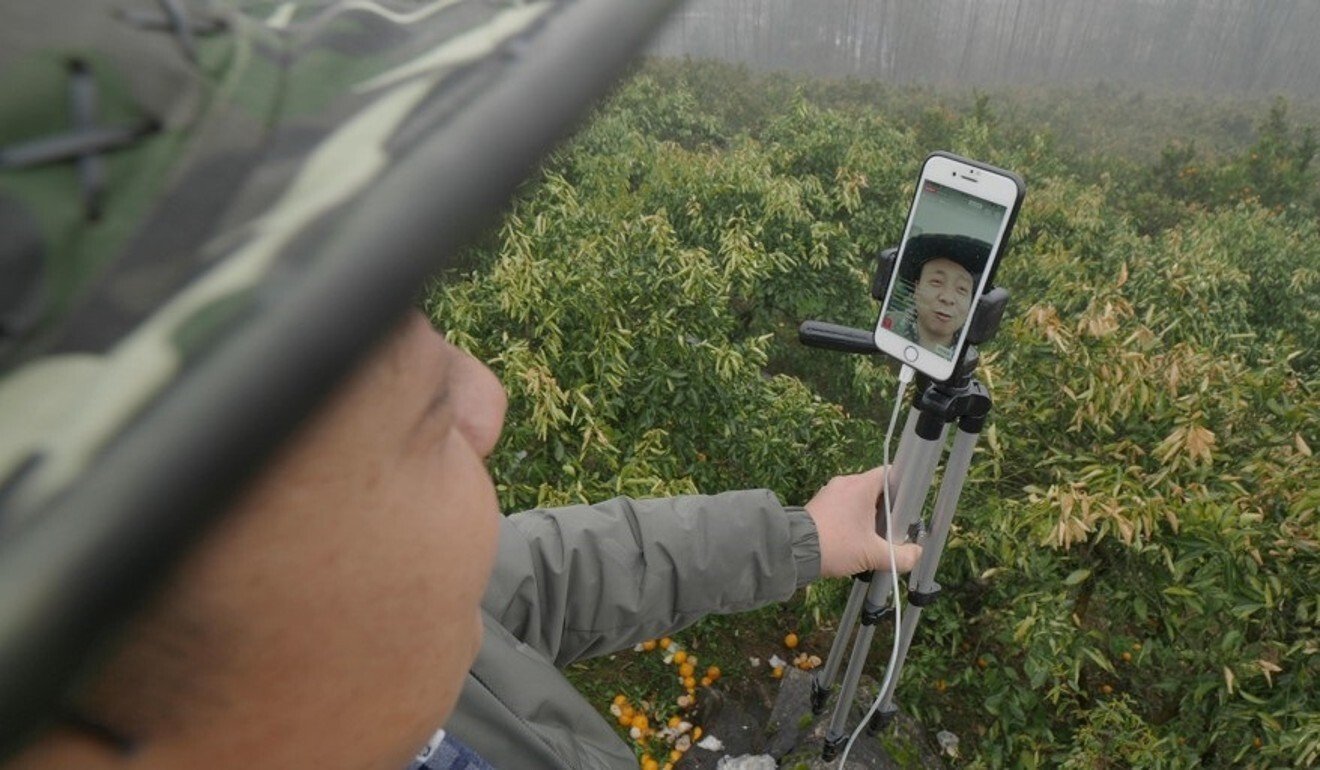
Live streaming e-commerce is booming in China after the Covid-19 pandemic
- Whether it's lipstick, fresh oranges or even rocket launches, e-commerce through live streaming has been a hit in China

“Buy it! Buy it! Buy it!”
That’s the battle call of China’s “King of Lipstick,” Li Jiaqi, the live streaming beauty product salesman who once sold 15,000 tubes of lipstick in just five minutes.
Li is one of a rising number of people hawking products on China’s e-commerce and live streaming platforms. Part salesperson and part influencer, they push everything from Louis Vuitton bags to home-grown oranges. And millions are tuning in to watch.
The trend hasn’t quite caught on in other parts of the world: Amazon’s experiments with live streaming haven’t attracted much attention, while Facebook and TikTok have only just begun.
But in a sense, the concept isn’t new. It’s an evolution of the television shopping channel, which has been tempting (usually elderly) viewers into buying jewelry and fancy knives since the 1980s.
Instead of TV, online salespeople hawk their wares on live streaming services. These platforms have grown exponentially in China, as online penetration booms and viewers search for content more exciting than what’s on the risk-averse and government-controlled TV networks.

And then the pandemic struck.
Covid-19 paralyzed the country, leaving many industries struggling. But not live streaming. With shops closed and people stuck at home with little to do, live streaming e-commerce is expected to grow to US$129 billion this year, according to iiMedia estimates.
“It is one of the tactics to stimulate online sales for most vendors, especially in the [Covid-19] recovery stage,” said Sophie Pan, research manager at IDC China.
Li Jiaqi is one of the most well-known faces of this booming trend, partially because he uses his face to test the lipstick he sells. But Li has made a name for himself not just because of eye-popping sales figures -- which can reach millions of dollars in a single stream -- but because his fans say he doesn’t act like a salesman.
“I haven’t bought any of the things he recommended but since I first saw his videos, I felt he was a very sincere person,” wrote one fan on China’s Q&A forum Zhihu.

Influencers like Li built their fanbases by appearing to be genuine. Chatly’s Lauren Hallahan tells me that they’re seen both as experts and as peers, helping people to cut through the overwhelming number of choices with their personal picks.
For many, it’s often more comfortable tuning into a live stream than dealing with pushy salespeople in stores.
“The consumer is more in control, they can leave at any point,” says Hallahan.
But not everyone is a fan. Liu Bo, a partner with venture capital firm Crystal Stream Capital, told local media that the popularity of live streaming ecommerce can be attributed to "lazy or sometimes mindless shoppers."
Behind these purchases often lies a healthy dose of FOMO, or “fear of missing out.” Viewers get bombarded with coupons, deals and alerts of rapidly diminishing stock, enticing them to buy now -- before it’s too late.
And it’s not just consumer goods on offer: In April, China’s “live streaming sales queen” Viya apparently managed to sell a 40 million yuan (US$5.6 million) rocket launch service on a stream.

Viya and Li are among the many online influencers becoming household names, whether streaming on Alibaba’s e-commerce platform Taobao or popular short video platforms like Kuaishou or Douyin, the Chinese version of TikTok. But the pandemic has also changed perceptions of the role live streaming sales can play in the economy.
(Alibaba is the parent company of the South China Morning Post.)
After the lockdown ended in Wuhan, the pandemic’s ground zero, government officials used live streams to showcase their favorite local products. CEOs of major companies like NetEase and Ctrip appeared on streams to sell smartphones, travel packages and home appliances. IDC’s Pan says using company CEOs adds more credibility to their streaming sales pitches.
The potential to boost business in the aftermath of the pandemic has won live streaming e-commerce newfound respect from the government.
The National Development and Reform Commission launched a plan to encourage newer business models, including e-commerce, while President Xi Jinping has lauded live streaming sales as a way to help rural residents shake off poverty.
According to employment website Lagou, demand for live streaming hosts surged by almost 50 percent in the first half of this year. Municipal governments have been trying to incorporate the trend in their development plans.
But it’s not clear how long the call of “Buy it! Buy it! Buy it!” will continue to be attractive.
A March survey from the China Consumer Association found that users liked shopping this way because it’s more social and interactive. But it also highlighted that nearly 40 percent of users have run into problems – the biggest among them being exaggerated and false marketing.
Even the beloved “King of Lipstick” lost some credibility after he tried to advertise a non-stick pan that immediately became very sticky after he tried to fry an egg on it.
“I definitely think that the hype around e-commerce live streaming will plateau at some point,” says Hallahan. She notes that although people will continue to buy from live streamers, the hype around online trends in China tends to last 1-2 years.
After that? Another type of content or platform will gain attention, and the hype cycle begins again.